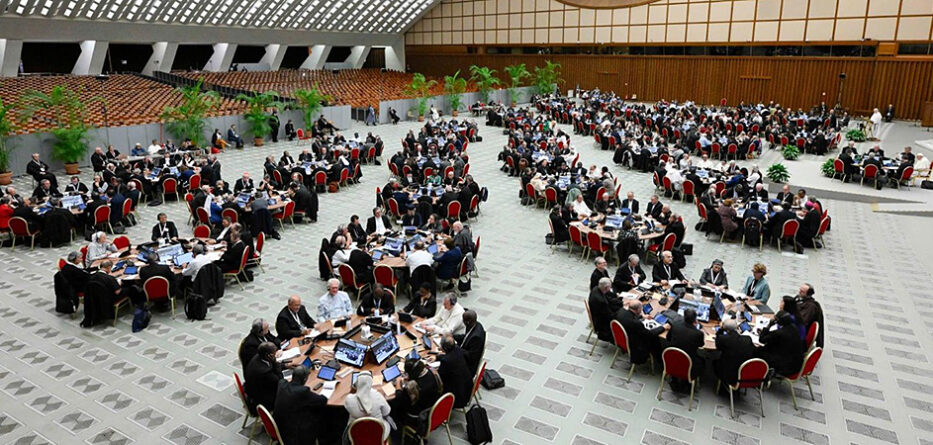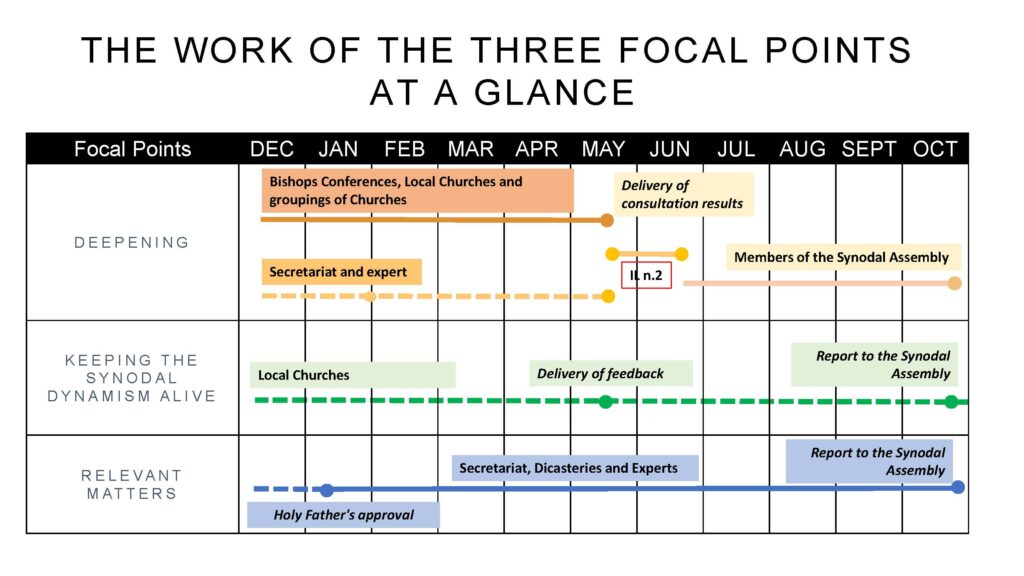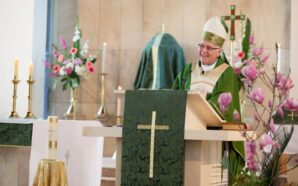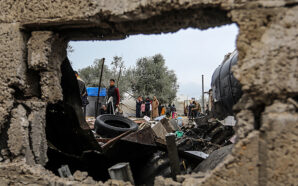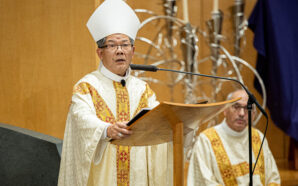Cardinals Grech and Hollerich write to bishops across the world explaining the next stages of the synodal process in view of next year’s second and final session of the Synod of Bishops on synodality.
The work of the Synod on synodality continues in view of the final session set for October 2024, and Churches are now called to reflect on the Synthesis Report published in October 2023, to promote further consultation and to prepare contributions for next year’s assembly.
Bishops from across the world have just received a document with instructions from the Secretariat of the Synod accompanied by a letter from Cardinals Mario Grech (the General Secretary) and Jean-Claude Hollerich (the Relator General).
The four-page text first of all underscores the importance of the experience lived by those who took part in the first session of the Synod in October this year, recalling that “their account constitutes an inalienable part of the gift we have received, conveying the richness of an experience that no text can condense.”
The synodal process will, therefore, continue along some lines of work, keeping in mind what Pope Francis said when he approved them that “the Synod is about synodality, and not about this or that theme”, and that the “important thing is how the reflection is done, that is, in a synodal way.”
Topics to be discussed
Regarding the specific themes that have emerged so far, the document explains that some need to be considered at the level of the Universal Church and in collaboration with the Dicasteries of the Roman Curia.
These matters include, for example, the preliminary study in view of the updating of the Code of Canon Law for the Latin Rite (CIC) and the Code of Canon Law for the Eastern Rites of the Church (CCEO); of the Ratio Fundamentalis on the formation of ordained ministers, of the document “Mutuae Relationes” on the mutual relations between bishops and religious in the Church; or the deepening of theological and pastoral research on the diaconate and specifically, on women’s admission to the diaconate.
A list of these topics will be submitted to the Pope as the fruit of the Assembly of the Synod. Groups of experts from all the continents, along with the relevant Dicasteries of the Roman Curia, coordinated by the General Secretariat of the Synod will be asked to work ” in a synodal way” on the topics indicated by the Pope. A report on the progress of this work will be presented at the Synod.
Focus on how to be a synodal Church in mission
Discussions in the next month will focus on the fundamental question of how to be a synodal Church in mission, with the aim to identify the paths to follow and the tools to adopt to “enhance the unique contribution of each baptised person and of each Church in the one mission of proclaiming the Risen Lord and his Gospel to the world today.”
As the document clarifies, the process must, therefore, not be limited “to a plan of technical or procedural improvements to make the Church’s structures more efficient,” but rather be “a reflection on the concrete forms of the missionary commitment to which we are called, that express the dynamism between unity and diversity proper to a synodal Church.”
In this regard, the text cites paragraph 27 of Pope Francis’ Apostolic Exhortation ‘Evangelii Gaudium’ (The Joy of the Gospel), the flagship document of his papacy, which reads: “I dream of a ‘missionary option’, that is, a missionary impulse capable of transforming everything, so that the Church’s customs, ways of doing things, times and schedules, language and structures can be suitably channelled for the evangelization of today’s world rather than for her self-preservation. The renewal of structures demanded by pastoral conversion can only be understood in this light: as part of an effort to make them more mission-oriented (…)”
Two levels
According to the newly released instructions, this guiding question needs to be addressed on two levels, “always having as its reference point the Synthesis Report as a whole.”
At a local level the questions will be: how can Churches enhance diversified “co-responsibility” in the mission of all the members of the People of God; how structures, processes of discernment and decision-making processes related to the mission can enable to shape and promote co-responsibility; what ministries and participatory bodies can be renewed or introduced to better express this co-responsibility.
With regards to the second level involving relations between Churches and the Bishop of Rome the question will be how to articulate them in order to find “a dynamic balance between the dimension of the Church as a whole and its local roots”.
With all this in mind, the Secreteriat of the Synod invites each local Church to carry out further consultation.
Not starting from scratch
However, the document explains, this work will not start from scratch and, therefore, will not involve repeating the process of listening and consultation undertaken during the first 2021-2023 stage.
In this new phase, in addition to the participatory bodies at diocesan level and the synodal team already established, it will be important to involve people and groups that express a variety of experiences, skills, charisms, ministries within the People of God and whose point of view is of particular help in focusing on the ‘how’. These include theologians and canonists, and local academic institutions.
Contributions to be presented by 15 May 2024
After collecting the contributions of the Dioceses or Eparchies, the Episcopal Conferences and the Oriental Churches’ bodies will be tasked with drawing up a summary of a maximum length of 8 pages, to be sent to the General Secretariat of the Synod by 15 May 2024.
On the basis of the material thus gathered, the Instrumentum laboris, the Synod’s Working Document will be drafted.
Keeping the synodal dynamism alive
Local Churches are also invited to go through the entire Synthesis Report, and collect specific requests that reflect their specific situation. This will allow them to promote the most appropriate initiatives to involve the entire People of God (for example, formation activities, theological in-depth studies, celebrations in a synodal style, grassroots consultations, listening to minority peoples and groups living in poverty and on the margins creating spaces for controversial issues etc.).
Each local Church that wishes to do so may send a brief testimony of the work carried out, and the experiences lived (maximum two pages) to the respective Episcopal Conference, sharing any good practice that it considers significant for the growth of a missionary synodal dynamism.
Finally, the document asks the Episcopal Conferences to accompany this process, to undertake the in-depth study of the guiding question and to prepare a summary of the contributions received and send it to the General Secretariat of the Synod again by 15 May, 2024.
Regarding the commitment to keeping the synodal dynamism alive, the Episcopal Conferences are invited to continue to encourage initiatives that promote the synodal and missionary dimensions of the Church, to collect the testimonies and good practices presented by the Dioceses and Eparchies, and send them all to the General Secretariat of the Synod by the same deadline.
Download a copy of the document Towards Synod 2024 here and download a copy of the worksheet here.
With thanks to Vatican News, where this article originally appeared.




